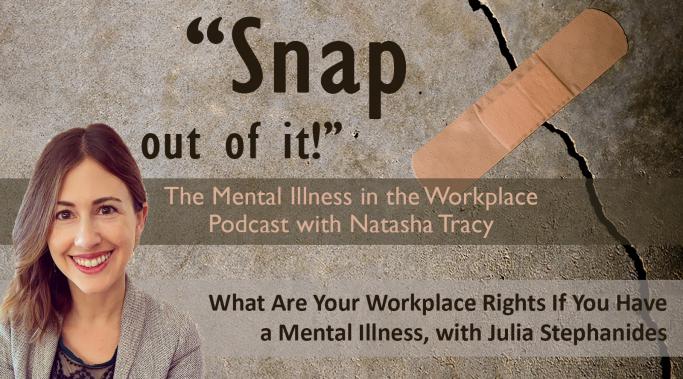This week, "Snap Out of It!" talks to lawyer Julia Stephanides. She schools us on the rights people with mental illness have at work and how you can use those rights to better navigate working with a mental illness.
Mental Health Legal Issues
About 7.7 million adults and 20% of children and adolescents suffer from severe mental illness. Severe mental illness is chronic and requires sustained treatment. Mental health has become the most politically charged topic of today but despite attention, one population remains unrecognized.
The overwhelming neglect of parents, families, and caregivers is what led me to write my first book. I have always been aware of systemic barriers. But I wasn’t aware of the great divide between parents, families, and caregivers and mental health professionals, services, or even advocacy groups. (Parents of Mentally Ill Children Have a Long and Difficult Journey)
A veteran with PTSD considers living in a van in New Hampshire with his wife, two small children, and two large dogs. He can't find housing that will accept the dogs he can't live without. A peer specialist fails to get a homeless woman with a psychiatric disability into a shelter because she won't be separated from her cat. A woman with bipolar disorder pays hundreds of dollars each year in illegal fees to keep the cat who helps her sleep. These people are real. Their needless suffering and expense occurred because few people understand our rights under the Fair Housing Act (FHA).


